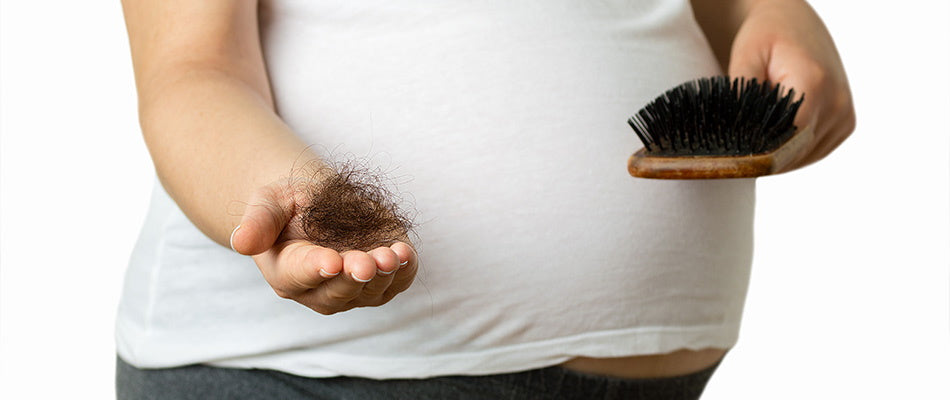Why can hair loss occur during and after pregnancy?
For the healthy development of your baby, they need a lot of iron, which your body passes on with the food intake. Your iron requirement increases by up to 60 percent during pregnancy. If you don't get enough iron, this deficiency can lead to hair loss.
Other signs of iron deficiency are severe fatigue and loss of appetite. Thyroid problems can also be a reason for hair loss during pregnancy. Symptoms of this are muscle cramps, constipation and dry skin. Your gynaecologist will be able to identify and treat thyroid disease during the check-ups.
The third reason for pregnancy-related hair loss is stress. So try to relax as much as possible and not put yourself under pressure.
If the hair loss does not start until after your child is born, your hormones may be to blame. During pregnancy, oestrogen levels increase, which keeps hair follicles in the growth phase - your body focuses on maintaining them. For this reason, many women also have particularly beautiful and shiny hair during this time.
Immediately after birth, the oestrogen concentration drops and your hair follicles switch to the resting phase. You may then find a lot of hair in your hairbrush. You don't have to worry about it though, because you're only losing the hair that you would have lost anyway over the past nine months if your body hadn't hormonally prevented it. After a few months, your hormone balance should level out on its own.
Tips to prevent hair loss after pregnancy
You cannot prevent hormonal hair loss, but you can help your body to regenerate well from the hormonal chaos. Eat a healthy and balanced diet to get all the important vitamins and nutrients.
It also helps to avoid stress as much as possible and to rest after the birth. Treat your hair gently by using mild shampoos and avoiding chemical dyes and hot hair dryers. This is because your scalp can change during pregnancy, which can make you uncomfortable with your care products and hair colour. Also, use combs and brushes that gently detangle your hair and don't pull on your hair unnecessarily.
It can also help if you wear your hair loose, since a tight ponytail puts strain on the hair roots. Maybe treat yourself to a new haircut that better suits your new life and hair situation.
You’ll notice you can do something against hair loss during pregnancy, but not so much after the birth. Don't stress about it, just pay attention to your body and mind. Do something good for yourself regularly and talk to your gynaecologist about your problems.
If hair loss persists, they will work out a plan with you. In most cases, however, your hair growth will level out on its own and you can concentrate on getting to know your baby and enjoying being a new mum.

